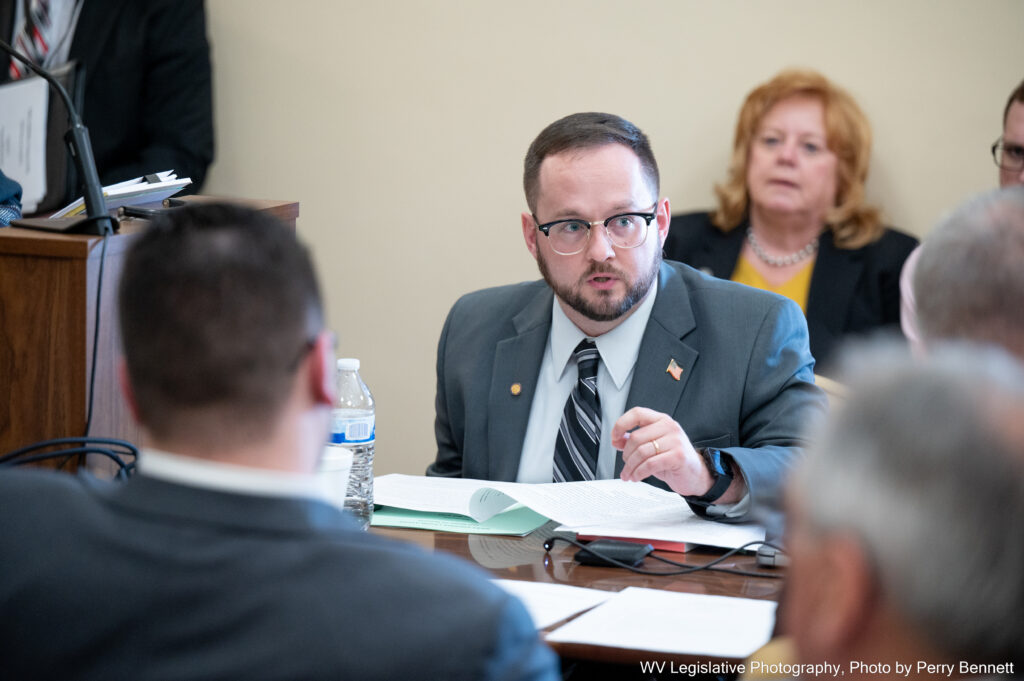The West Virginia Legislature is more than a week into the session and bills have started to move through their respective committees. The Education committees of both chambers are addressing financial issues in the state’s schools.
Many of these bills taken up and passed this week may seem familiar. That’s because most of them also passed both Education committees last year, only to founder in House and Senate Finance.
The House Education Committee took up issues of educator pay at their meeting Wednesday. House Bill 4202 would raise salaries for school service personnel by $670 per month.
House Bill 4767 raises the salaries of new teachers with no experience to $44,000. A similar bill, Senate Bill 204, passed out of the Senate Education Committee last year but did not make it out of Finance.
House Education Committee Chair Del. Joe Ellington, R-Mercer, said the two bills would make positions in West Virginia more competitive with neighboring states.
“Of note, that also brings up to the 50th percentile of our surrounding states,” he said.
Gov. Jim Justice already announced plans to raise the pay of all state employees, including teachers and school staff, by 5 percent this year. Legislative leaders have indicated their support of the raise, but union leaders and other advocates say the raise isn’t enough to address rising PEIA premiums, let alone bigger issues of teacher retention.
Related to the teacher shortage, a bill that attempts to define and limit the role of school counselors drew much discussion. House Bill 4769 aims to narrowly define the duties of school counselors, something Del. David Elliott Pritt, R-Fayette, said is necessary.
“I actually had a lunch meeting with a couple counselors that work in the county that I represent, and these counselors have over 300 unanswered counseling referrals because they’re being asked to fill in the role of teacher in positions that no long-term or short-term, day-to-day sub will take,” he said. “And it’s a problem. These are counseling referrals that could be potential suicide risk, abuse from a parent or guardian. They’re unanswered, because they’re being asked to fulfill other duties. This bill is incredibly important. I’m happy to support it. And I’m honestly very glad that we’re really addressing this, this year.“
Pritt works as a social studies teacher at Fayetteville PreK-8.
All five of the bills discussed were recommended to the House for passage.
On the Senate side, the Education Committee Thursday morning took up a bill regarding the Promise PLUS program, Senate Bill 259. First established in 2001, the Promise Scholarship is a merit-based academic award that pays in-state tuition and fees, or $5,000, whichever is less, at any eligible institution in West Virginia.
The Promise PLUS program would act as a supplement for individuals who meet more rigorous standards so that the total of both scholarships is equal to the actual cost of tuition.
Sen. Mike Oliverio, R-Monongalia, voiced his opposition to what he called the bill’s “held hostage” provision, which would require recipients of Promise PLUS funds to pay the state back if they left the state after graduation.
“I think the approach would better be to increase the amount of money that we give to all of the Promise scholarship recipients and continue to not have a “held hostage” provision over them and really live by that concept of, as a state, we should train and educate our next generation,” he said. “And if they leave, so be it, maybe they’ll come back. But if we don’t train and educate them, and they stay, we have a lot of problems.”
Senators also discussed bills to require age-appropriate education on the Holocaust (SB 448), as well as the development of an education program to teach safety while accessing technology (SB 466). All three bills were recommended to the Senate for passage.




















